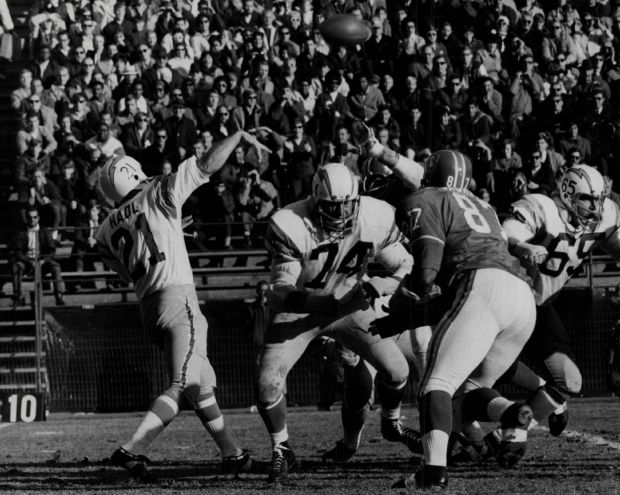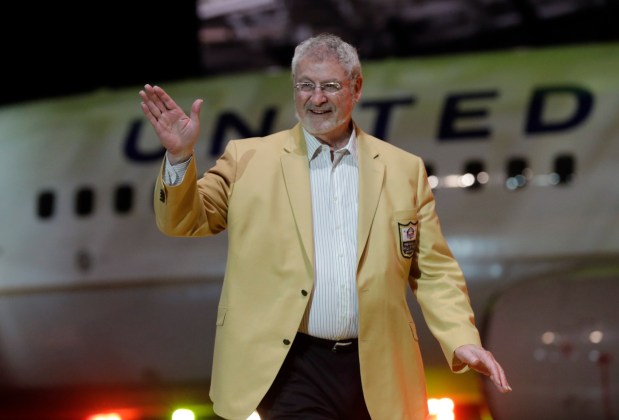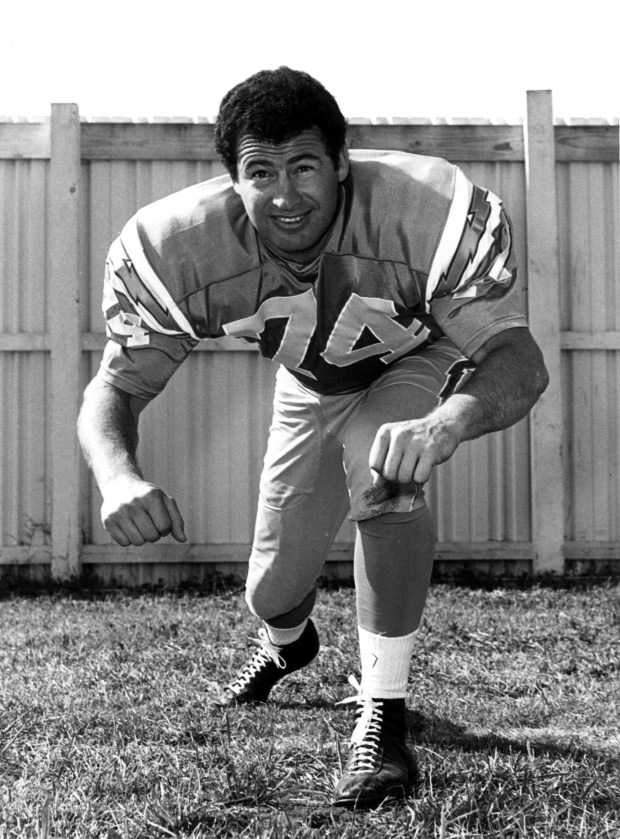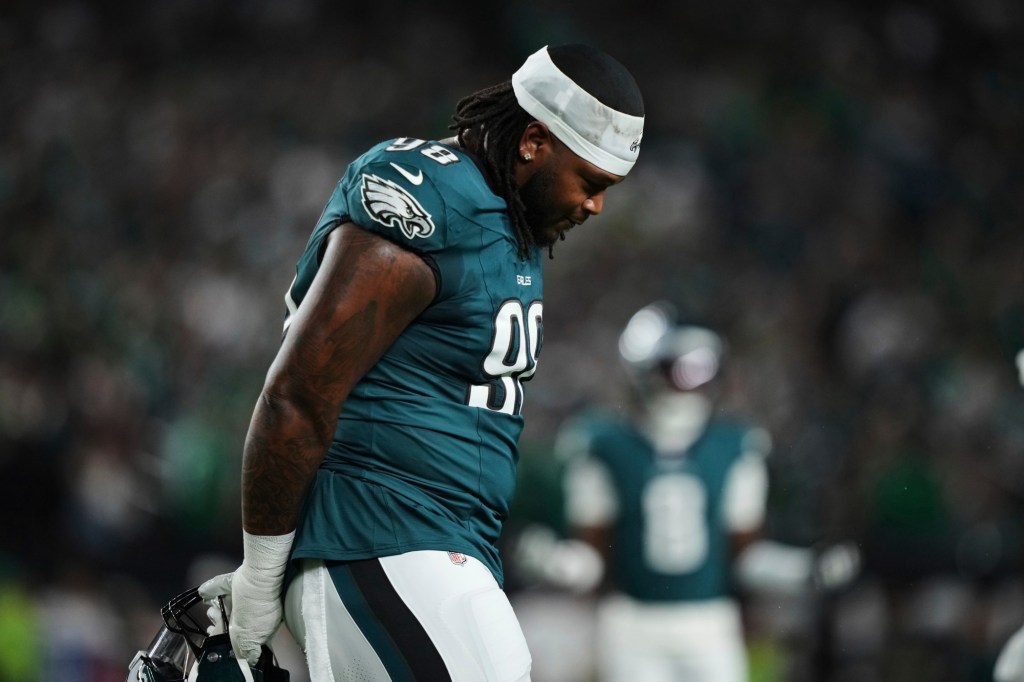On the opening night of the 2025 NFL season, the Philadelphia Eagles met the Dallas Cowboys in a matchup that was overshadowed by several incidents that violated the core tenets of sportsmanship.
Eagles defensive lineman Jalen Carter was ejected from the game when he spat on Cowboys quarterback Dak Prescott.
Here is Jalen Carter spitting on Dak Prescott: pic.twitter.com/4F5BjEDLHf
— Adam Schefter (@AdamSchefter) September 5, 2025
Get this: The act was done before the first offensive play, when Prescott confronted Carter for being on the Cowboys’ side of the line of scrimmage. This incident wasn’t isolated. As reported by the press, the game featured multiple other unsportsmanlike infractions by both teams, including shoving, punching, and personal fouls.
My focus is on this particular game, but other incidents of unacceptable player behavior are far too common.
Sportsmanship isn’t merely about following the rules — it’s deeply rooted in mutual respect, self-control, and integrity. Beyond mere violation of rules, this behavior undermines the very spirit of competition.
It betrays the values pro athletes are expected to model, particularly for those watching to learn, such as that sacred audience of high school, college, and younger players.
 DEC 1 1968, DEC 2 1968
DEC 1 1968, DEC 2 1968
Hadl Unloads 79-Yard Bomb To Lance Alworth In First Quarter
San Diego quarterback John Hadl gets away a 79-yard, scoring toss to flanker Lance Alworth and receives ample blocking support from Ron Mix (74). Denver’s Rich Jackson puts on pressure. Touchdown gave Charges 21-3 lead.
Credit: Denver Post
As an offensive lineman, I played against fellow Pro Football Hall of Fame members Deacon Jones, Buck Buchanan, Bobby Bell and Claude Humphrey and other outstanding players such as Gerry Philbin of the Jets and Jerry Mays of the Chiefs.
Not a single disrespectful word passed between us. In fact, the only time I spoke to one of them and one of them spoke to me during a game was during a lull in a game. I said to Philbin, “Gerry, great game against Colts,” referring to the Jets’ victory against Baltimore in Super Bowl III.
Gerry gave a one-word answer: “Thanks.” Helater told the press that it was the only time in his entire career he spoke to an opponent during a game.
Young athletes at the Pop Warner, high school, and college levels often look to NFL players as exemplars of competitive conduct. When such professionals display crude, vulgar, unsportsmanlike behavior, it sends a dangerous message that such conduct is appropriate.
Think I am being an alarmist? Think again. Two days after the Carter act, a University of Florida defensive lineman spat on a University of South Florida opponent.
What is particularly disturbing is that while the NFL has crafted appropriate and severe penalties in its effort to direct proper player conduct, the problem of player misconduct is still far too prevalent.
 Ron Mix is introduced before the inaugural Pro Football Hall of Fame Fan Fest Friday, May 2, 2014, at the International Exposition Center in Cleveland. (AP Photo/Mark Duncan)
Ron Mix is introduced before the inaugural Pro Football Hall of Fame Fan Fest Friday, May 2, 2014, at the International Exposition Center in Cleveland. (AP Photo/Mark Duncan)
Why this matters
1. Integrity of the game. Professional sports anchor themselves in the notion of fair, clean competition. Unsportsmanlike acts undermine viewer trust and tarnish the game’s image.
2. Responsibility to youth. NFL players serve as aspirational figures. Millions of young boys and men have played football at some level; in pro football’s 100 years of existence, only approximately 10,000 have had the honor to don a pro uniform. We pro players gain so much from the public, we should embrace the opportunity to show our appreciation by being positive role models.
3. Mental toughness vs. emotional control. Aggression is intrinsic and necessary in football, but it has to be channeled within the rules. Again, displaying this discipline models the type of behavior we want to foster in young people.
 Former San Diego Chargers’ Ron Mix who played in the 1960’s. Photographer: courtesy photo Credit: digital file Date: 19990203
Former San Diego Chargers’ Ron Mix who played in the 1960’s. Photographer: courtesy photo Credit: digital file Date: 19990203
One of my most cherished possessions is my set of dog tags from serving as a soldier in the U.S Army. During Basic Training, I witnessed the training sergeants turn aimless young men into disciplined, responsible fighting soldiers.
In many ways, participation in athletics is similarly transformative.
Army Basic Training builds resilience and perseverance through demanding routines and enforces respect for rules and chain of command, just as sports instill respect for rules, teammates, opponents, and fair play.
In a sport that glorifies toughness, strength, and resilience, we athletes must display discipline and respect in order to preserve the values that make competition meaningful and instructive for the generations that follow.
One of the greatest San Diego Chargers of all time, Ron Mix played offensive tackle in the NFL from 1960-69 and again in 1971. He was inducted into the Chargers Hall of Fame in 1978 and the Pro Football Hall of Fame in 1979. Mix is president of the Pro Football Retired Players Association. He lives in Point Loma.
